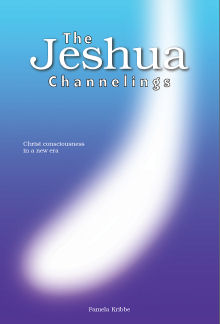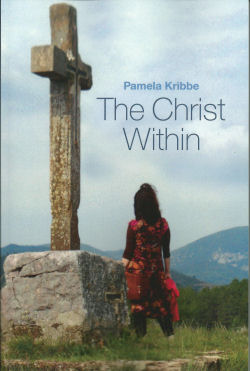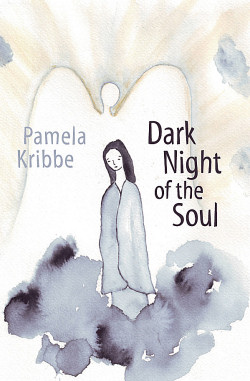Soul and Personality
by Gerrit Gielen
Concepts like “soul”, “ego”, “personality”, “the inner child”, and “consciousness” are often used in esoteric writings. They all are an important part of what constitutes our humanity. But how do they relate to each other, and what do they mean for us in our everyday life? Traditional psychology offers a variety of models of the human personality. What’s usually missing is the spiritual perspective. In my view, at the core of the spiritual perspective is the idea that we as human beings are, in part, independent of time and space, and that this part is crucial for a proper understanding of who we are. I refer to this part as the soul. Not only do we have a soul, which exists beyond time and space, this soul manifests itself inside time and space in much more than a single human life: we all have many lives. I believe the concept of reincarnation is central to the spiritual perspective as well.
In this article, I propose a psychological model of the human being from a spiritual perspective and this model is based on my experience as a hypnotherapist and my spiritual insight as it has evolved over the years. I will discuss each of the concepts mentioned above and describe what I feel are their defining characteristics.
The soul
When we perceive the world around us with our senses, everything seems to manifest itself inside time and space. When I went to college some 40 years ago to study mathematics, physics, and astronomy, I conceived of the universe as fundamentally an endless space containing an infinite number of particles. However, I also believed in the existence of the human soul and reincarnation. And it was not clear to me how I could unite the fixed, causal, mathematical laws of the physical universe with the inner world of the mind: consciousness, subjectivity, freedom. One key to me was Einstein’s theory of relativity. It taught me that on the level of light, time and space do not exist; for light, there is only the eternal now. To make this clear: if we look at a distant star, we say that it took many years for the light of that star to travel to us through space. But for the light beam itself this is not the case. If we were able to travel with the light, sitting on top of the light beam, so to speak, we would not experience time and space. This is because moving at the speed of light, time and space collapse. Light does not travel inside time and space; rather it shapes our very perceptions of time and space.
The theory of relativity offers the following picture of the universe. Light is a form of energy. All energy exists in a time-and-space-less condition: the eternal now. From the level of pure energy, matter emerges and, along with matter, so do time and space. Just as light in the physical universe is independent of time and space, there is also a part of us that is independent of time and space, independent of the physical body: this part is what I call the soul.
Exactly what the soul is, is beyond our comprehension. Our thinking is based entirely on the classification of things in time and space. Also, our language is determined by distinguishing past, present, and future. But the soul transcends time and space. The soul is like a star with many rays. And if one such ray touches our world, a human being is born: an incarnation of the soul. Something of the light from that star is in us; this is the beautiful, the good, in us. We call this our higher self, our inner light. The more we become aware of this light, the richer and fuller life becomes. We will eventually express this beautiful star light on Earth and enrich the world and humanity with it.
As soon as we start to become aware of this inner light – our soul – we will enter a growth process. We have the feeling that we become more ourselves and, at the same time, we feel ever more deeply connected with the world, with life around us, and with the universe. Doubt disappears; we gradually start to realize who we are and that there is a unique place for us in the universe. We then leave behind the world of darkness, doubt, and fear, and we experience the eternal light within. It is the soul that gives meaning to our lives.
People often wonder what the goal is, the meaning of life. Because of the way we are brought up, we are looking for meaning and purpose outside ourselves. We want to achieve something in life, build a career, create something worthwhile, find a relationship, or have children. But the real purpose in our lives is an inner purpose: to allow the light of our soul to flow through us completely. This is true self-realization. Once we have achieved this, we no longer ask what the meaning of our lives is; the searching ends. There is a simple and obvious knowing: we have found our place in the universe. The path is not outside us, but in us: we are the way. By being faithful to ourselves, we follow that path.
The earthly personality
In the beginning of our human life, a ray of light from our soul touches the Earth. The timeless energy of our soul merges with a number of other energies and our earth personality is born. That personality is unique for every person. In previous lives, you had a different temperament, different expectations, different fears; everything was different – except your soul. The deepest core is always the same, but the energies around it are different. As the American General Patton wrote in a poem:
So as through a glass, and darkly
The age long strife I see
Where I fought in many guises,
Many names, but always me.
It is the soul that gives us the sense of being me. Even if we partake in a life with a very different personality, a different gender – sometimes even with a non-human body – still we can sense: that was me. This also applies to our present life. Stand in front of the mirror and think of your childhood. Your face has aged, your emotions and your consciousness have changed – but still… it is you. We feel, deep inside, at the core of our being, an identity, a Me who has always been there and does not change. This Me is independent of time and space, it does not age with the body – what we are sensing is our soul.
Our earth personality can be compared with a solar system: the core – the sun – is always the same. But there are planets rotating around the sun, and the planets continually change their position. The configuration of the planets represents the energies that determine our personality, other than the sun itself. What are those other energies that form our personality? The main ones are: our past lives, our parents, our body and genetic make-up, the society in which we grow up, the energy of Earth, and the energy of humanity at large. I will now discuss each of these influences.
– Our past lives
To start with, there are our past lives. And from all those past lives, the one that is particularly important is the life directly preceding our present life; it usually has a deep influence. The way our past lives impact us depends on how much of them we have integrated and released. After every lifetime, when we leave the physical body, a natural and beautiful growth process begins. Gradually we let go of our earthly personality, with all its fears, uncertainties, habits, and we return and reunite with our soul. We experience this as a growth process, becoming more of ourselves. No one who overcomes their fears says: now I have lost something important. It is the unreal in ourselves that we let go of, and the eternal that we allow in. Fear gives way to love, ignorance to wisdom. We take from our past life what has made us grow in wisdom and love.
However, this natural growth process does not always occur. In fact, many people hold on stubbornly to their earthly personality after their deaths. They will inhabit an astral environment in the afterlife that reflects their attachment to life on Earth. If they have distinctive religious beliefs about heaven, they meet up with others of the same religious beliefs who have a similar vision of heaven. They may insist that they are in the right place and that every urge to leave is wrong. In this way, natural growth is blocked. The result is that many people believe that they are in heaven, while feeling dreadfully unhappy, because they don’t listen to the signals of their soul. Also, people can be so full of the impressions and experiences of their last life that they can not very well let go of it. Pain, trauma, and loss may have overwhelmed them, or alternatively, they may have been very successful and happy and not ready to let that go.
In short, for many people, the growth process of releasing and integrating their past life is not – or not completely – finished when their soul enters a new incarnation. What happens then is that they experience their rebirth as a kind of waterfall of light that descends from heaven to Earth and in which they are sucked along. Sometimes they surrender to it, but often there is also resistance. In my practice, I often encounter this resistance to life on Earth when people go into the trance state and revisit the beginning of their life. When I ask them: “How did it feel when you came to Earth?” they say: “I resisted, I did not really want to come, but I had to.” That resistance to life is often an issue that persists throughout their entire life and it is the cause of being unable to freely enjoy life.
If I ask my clients to carefully observe to whom this resistance belongs – who is resisting life? – then they usually trace this feeling back to the personality from their most recent past life. I try to let them feel that there is also a part of them that did want to be here. This part, in fact, represents the true self, their soul. When they connect to this part and feel it, the resistance is overcome.
But even when there is no resistance to life in someone, if the personality of a past life was not able to connect and reunite with the soul in the intermediate period before a new birth, this past life personality still lives on in the current personality. Because it could not find its way back to the soul, in the present life, it will also stand in the way of contact with the soul.
– Our parents
Our parents are important in two ways. First, they provide us with our first examples of the female and male energy. On the level of our soul, the male and female are one, but as soon as we descend to the Earth, a kind of split occurs. Our parents act like molds: we form our female energy mostly in the image of our mother, and our male energy in the image of our father. If there is a lot of disharmony between our parents, this will be reflected in the way we deal with the male and female energies inside ourselves.
Secondly, we are deeply influenced by the fears and beliefs of our parents. That is why it is important to learn to understand and love our parents, whatever is wrong with them. They live inside us; energetically speaking, they are a part of us. If we are in conflict with them, we are also in conflict with ourselves. This does not mean, of course, that we have to agree with them. We are in the right relationship with them when we realize that we are their teachers. Every child has a beautiful gift for its parents and offers them something new.
– Our body and its genetic make-up
The influence of the body on the personality is huge; it limits and restrains the extent to which the soul can flow through; the greater part of the soul’s energy can not be expressed by the body. You’re essentially far more than you can ever be in a body. The body causes the soul to focus on a specific place and time, and to experience reality in a unique way through that lens. It creates a strong sense of here and now.
In particular, the nervous system of the body is important; the richer and more complex the nervous system is, the better the soul can manifest. Through the nervous system of a dog, the soul can not express itself as much as through the nervous system of a human being. Your sex also has a major impact on your personality: in a female body, it is easier to be in touch with your female energy than in a male body. And finally, it is not hard to imagine how formative the body is if you live in a malformed or chronically ill body.
–The society and culture in which we grow up
We are all a product of the time and the society in which we grow up. For example, if we read a book or hear music, then we often sense immediately that it belongs to a particular time and culture. Every age, every culture, has its own ideas, accomplishments, and general atmosphere. Living inside it, you just adopt this energy and take it for granted. That also applies, of course, to our own age and culture. We look at the world through the lens of the times we live in.
–The energy of the Earth.
We are children of the Earth; the Earth is our mother. And just as our human mother left a deep influence on our personality, so the Earth does, too. That this is not immediately obvious is probably because every being on Earth is all too familiar with that influence. Also, since we usually deny that the Earth is a living being with a consciousness, we are not aware of how she shapes our thinking and doing as human beings.
Yet the Earth is in us. Astronauts, who leave Earth and watch her from afar, become deeply aware of their connection with her. Later in life, they often commit themselves to the fate of the Earth.
–The energy of humanity
We are human beings. As a regression therapist, I occasionally meet with clients who remember a lifetime in a non-human form, and usually it is a shock to discover how different that is, how different the world is perceived when you are not human.
Also, humanity as a whole is one; there is a grand group consciousness of which we are all a part. What is experienced and realized by one person, affects everyone. On the inner level, we are connected with all our fellow human beings. The energy of this group consciousness affects our personality and it is what makes us typically human.
The inner child
In addition to the external aspects mentioned above, there is an internal aspect that makes an important contribution to our adult personality: the inner child. Every adult human has once been a child. How deeply childhood shapes us is shown by literature. The feelings and events from one’s youth are an inexhaustible source of inspiration for many writers. In the outer world, the girl or boy you once were, is completely gone; the body is constantly changing. When I look at a photo of myself as a child, I then see a face very different from the one I see in the mirror. But in my inner world, things are different: the little boy I was is still there. Not just through my memories, but also in the way I feel and look at the world – in my inner world, he is still alive.
Our inner world is timeless; the inner child preserves a very pure and authentic part of us, which revealed itself in our childhood. In early childhood, we are still firmly connected with our soul, and our psyche is not yet influenced so much by the external forces of parents, society, etc. As we grow older, our awareness becomes molded and shaped by these aspects, turning us into adults who feel less connected with our origin, our soul. However, the child that is gone from the outer world lives on inside us: this is our inner child.
Psychologically, the inner child is the source of joy in our life; the ability to be inspired and happy in a carefree way, to be present in the now and to enjoy things. Unfortunately, many of us have gone through painful or even traumatic experiences in our youth, often without being aware of it. And because time does not exist in our inner world, everything that you have experienced as traumatic in your childhood is now still a distressing experience for your inner child. Many people are therefore faced with a damaged inner child, without being conscious of it, and as a result the child can not fulfill its natural function.
The good news is that we can heal our inner child. The first step is to become aware of the emotional trauma that our child has suffered. The older ones among us have grown up in a world in which children were objects for education, and their own identity was not taken seriously. As an adult, you might find it quite normal and important that a child goes to school, but the child in you may find it traumatic to be caged in a building, having to obey rules and learn things it did not ask for, without having done anything wrong. To feel what we have experienced as a child, we must be prepared to take off our adult glasses, to meet that inner child completely. We as an adult can understand and forgive the behavior of our parents – but can the child inside us do that?
In my experience, it is this honest and uninhibited look at your own inner child that has a tremendous healing effect. Even if it does not remove the pain right away, the child feels seen and taken seriously. The child feels that he or she is allowed to be their natural self. This creates space for healing.
In some literature the inner child is considered to be our ego. In this view, people with a big ego are people that are not able to control or hide their inner child. In my opinion, however, this is not the case. But before I can explain what the ego is, I have to explain something else: consciousness itself.
Consciousness
When I said that the beginning of our physical life is like a beam of light coming from our soul that touches the Earth, I was describing this event from the outside. But just as a ray of light in the physical universe, seen from the inside, never leaves the star, when we incarnate we never leave our soul: it is a shift of consciousness. Our consciousness becomes focused into a 3D body with five senses and a human brain.
But consciousness, what is that really? It is a concept that is very difficult to define – or not at all. The reason is that consciousness is at the basis of everything; everything we think, do, and are, is based on consciousness. Scientists, who try to explain consciousness in terms of something non-conscious, such as brain cells and biological mechanisms, often seem to forget that scientific knowledge itself is based on consciousness. In addition, science itself, by way of quantum mechanics, tells us that the elementary particles of physics only really come into existence (have a fixed location in time and space) if they are observed by a perceiver. And in order for perception to take place, consciousness must already be there. So, on the one hand, scientists seek to explain consciousness as a product of material laws and particles, but, on the other hand, those very laws and particles presuppose consciousness to begin with. Consciousness is the great mystery; without consciousness – nothing.
I will, nonetheless, attempt to capture some of the main characteristics of consciousness. When I go inward, focusing on what I am subjectively experiencing, there is in fact a collection of experiences: colors, sounds, feelings, thoughts, etc. Without consciousness, I would not have those experiences. Hence, consciousness is first of all something that makes those experiences possible: consciousness is an inner space where experiences can take place.
But that’s not all: all those experiences in my head are interconnected. When I’m talking with someone, then I see that person and I hear that person. The visual and the auditory experiences become internally connected in one way or another and together create the multi-layered experience of interacting with the other person before me. Consciousness is that which makes our experiences possible and also that which gives them unity. It is the point in me where things come together.
At the same time, consciousness is able to actively focus, enabling me to put my attention on something particular. For example, I can be totally absorbed in my work or in a film, or I can choose to be completely present in a specific part of my body when I am meditating. When I am taking a walk, my consciousness can even leave my body completely as my thoughts wander off. When a car suddenly honks, I return to the present with a shock.
This ability to focus can take on a more extreme form. The focus can be so intense that I identify with something entirely: I merge with it and start to think that I am it. What we call an incarnation is, from the viewpoint of the soul, a time when consciousness is going to identify with an earthly personality. It thinks it is that person and that there is nothing outside it.
Almost all problems in our life arise because we strongly identify with something we really are not. At the moment we choose to identify with who we really are – our soul – we discover that most of our problems are imaginary.
The ability to identify with something is a feature of our consciousness. And if I identify myself with my earthly personality, the ego is born.
Ego
What is the ego? When we say that someone has a “big ego”, we usually mean that they think they are very important, even superior, and do not hide it from anyone, and the latter especially annoys us. If they find themselves so important, very well, but it is when they openly show it that we get upset. There is, of course, something paradoxical about that attitude; if someone acts very self-important, they apparently do not find us as important – and that hurts our ego. So actually we consider ourselves very important, also, only we are “civilized” enough to hide it. We think that this is morally right. After all, you need to think of others, and not be self-centered: to remain modest is the motto. But if someone does not do that, and asserts themselves unabashedly, are we not a little jealous? Jealousy is also something of the ego. In other words, we all have an ego. If we were really ego-less, we would not be so annoyed with other people’s egos.
But what exactly is the ego? The ego is not a thing, but a measure. As I have said, our consciousness has the ability to focus somewhere. From a spiritual perspective, to be born means a shift in focus of the consciousness of the soul to the earthly personality. And in some cases, that shift is so radical that consciousness is going to think that the earthly personality is all there is. The personality then becomes extremely important. This is called a big ego. So what is the ego? The ego is the extent to which consciousness identifies with the earthly personality.
Finally, love
Why do we do this? Why do we incarnate as a human being and lose ourselves totally in an earthly personality? Why do we leave the atmosphere of light and love and face the challenges of duality on Earth?
The deepest answer to this question is love. Out of love we enter an area where there is no love; the ultimate goal is to bring light and love there, too. This jump into darkness is ultimately an act of love.
When we land here, we initially identify completely with a specific personality. The universe is experienced in our unique way; there is no room for a different perspective. The world is seen through the eyes of duality: it’s us against them.
But as consciousness evolves throughout many lifetimes, the soul will gradually be remembered, and duality will be transcended. New ideas emerge: love your enemies, respect people of other faiths, appreciate the beauty of nature and realize that we as humans are part of nature. Finally, there is full understanding: unconditional love for yourself, for the human being you are right now – and subsequently for the world around you. After many lives, the goal is achieved: the dark area starts to fill with light and love; the tears are wiped away.
Love, then, is the last part of the human personality I would like to mention. Both in the natural sciences and in psychology, the causes of things are often explained in a mechanical, materialist way. However, I believe that all that exists is ultimately created from love. Love is the connection between the one (Spirit) and the many (Creation), between the soul and the human personality. And that original love is present inside us as an inexhaustible source. As human beings, only if we are aware of this source, will we be complete.
© Gerrit Gielen
Translation by Maria Baes, Frank Tehan and Pamela Kribbe







